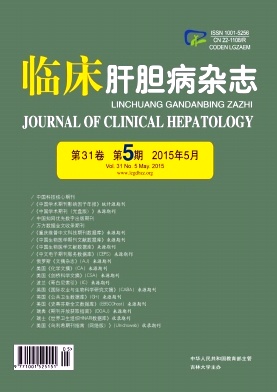Objective To investigate the relationship between heat shock protein 70(HSP70) expression and clinicopathological characteristics of hepatitis virus B(HBV)-induced hepatocellular carcinoma(HCC).Methods Statistical analysis was conducted to explore the association between the data of HSP70 obtained from the gene expression omnibus(GEO) and the clinicopathological characteristics of HCC.As for categorical data,frequency(proportion) was used to describe and chi-square test or Fisher's exact test was applied to analyze.Univariate and multivariate logistic regression analyses were used to investigate the relationship between HSP expression and the clinicopathological characteristics of HCC.The variables with a P value less than 0.10 were included for subsequent multivariate analysis.Results 1) The percentage of the HCC patients whose primary tumor sizes were more than 5 cm was significantly higher in the group with high expression of HSPA4 L,HSPA6,and HSPA13 than in the group with low expression(P < 0.05); in comparison with the group with high expression of HSPA1 A and HSPA6,the group with low expression had a significantly lower percentage of patients accompanied by liver cirrhosis(P < 0.05); there was a significantly higher percentage of patients with alpha-fetoprotein(AFP) levels more than 300 ng / ml in the group with high expression of HSPA5 and HSA13 compared with the group with low expression(P < 0.01).2) The survival rates of HCC patients with liver cirrhosis and / or primary tumor that was more than 5 cm significantly decreased(P < 0.05).3) Highly expressed HSPA4 L might promote the growth of HCC(OR = 1.019,95% CI: 1.006-10.032,P = 0.003); the patients with high expression of HSPA1 B might have a higher risk of developing multiple nodules(OR = 1.002,95% CI: 1.000-1.004,P = 0.003).Conclusion The expression of HSPA4 L and HSPA1 B is,to some extent,associated with the clinicopathological characteristics of HCC,which might be a therapeutic target and prognostic predictor for HCC.













 DownLoad:
DownLoad: